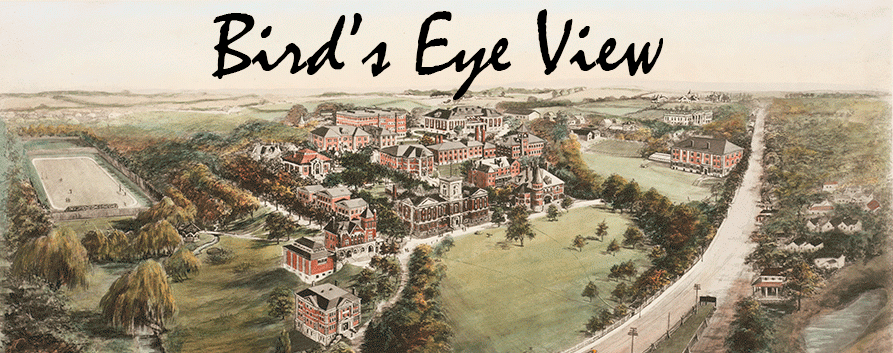 |
| Betty Tevis "interviewing" UK basketball player Bob Brannum, Louisville Courier-Journal, March 19, 1944 |
For the first time in university history, a woman, Betty Tevis, served as Kernel sports editor in 1944. The Louisville Courier-Journal featured her in an article as the first woman ever allowed into the men's basketball team dressing room to conduct interviews with the players.
However, Tevis recalled that the entire article had been staged by the UK Public Relations Office. She said she went along with it because she did not have “sense enough” to say “No, I’m not going to let you exploit me this way.” She admitted that she never had access to the men’s dressing room because that was “unthinkable in those times.” Rather, “they just posed me down there” while “a university photographer took the picture” for the press release.
Upon learning of the press release Dean Sarah Bennett Holmes called Tevis into her office for a conference. Holmes did not appreciate the story and the photograph of Tevis in the men's dressing room. In her own defense Tevis confessed to Holmes that it was not her idea and that she "wouldn't think" of going into the men's dressing room.
Tevis earned an AB in Journalism degree from UK in 1946 and became the first local news editor for Radio Station WLAP in Lexington. Other journalism work took her to WLW in Cincinnati, and then to WINS and WNEW in New York City. She also wrote for Movie Life magazine. She later married Andrew Eckdahl working in public relations at Berea College, Eastern Kentucky University, and until retirement in 1987 at the University of Kentucky. She was the sister of novelist Walter Tevis.



